Tough conversations
It takes a team
Sarah Polcher, DO, is one of 40+ hospitalists who rotates between admitting and rounding on patients, including those on the Medical Progressive Care Unit (MPCU) at St. Cloud Hospital. During normal times, the MPCU is where patients experiencing many different illnesses or ailments are cared for. But, in January 2022, the unit was all COVID patients.
“I’ve always been a provider that relied on my nursing staff and respiratory therapists because they’re at the patient’s bedside, minute-by-minute,” said Dr. Polcher. “But it became even more so with COVID because they were those eyes on the patient all the time.”
Polcher recalls one patient she won’t forget. “I admitted an individual who had COVID and was already on a high level of oxygen,” she said. “They were very sick and it was looking like they may need a breathing tube in the next 12 to 24 hours. I wasn’t able to get a hold of any family members to discuss this decision and we needed a translator.”
I’ve always been a provider that relied on my nursing staff and respiratory therapists because they’re at the patient’s bedside, minute-by-minute.
Dr. sarah polcher, Hospitalist, St. Cloud hospital
Using an iPad connected to an interpreter, she discussed the care options with the patient.
“These conversations are always difficult, even when there’s not a language barrier, because people often have their own interpretation of what being in the ICU means, or what a breathing tube means,” she said. “As a care team, we always work to provide the best care options for every patient, but with COVID, sometimes there are no good options.”
The care team eventually connected with the patient’s family and did everything possible, but days later, the patient died from complications of COVID.
These experiences are emotionally draining, but they remind Dr. Polcher how lucky she is to have a team around her who cares so deeply about every patient, and each other. “During the most difficult days, it helped knowing that inside the hospital, I had this community of people who are all doing the best we can for our patients.”
Nurse Libby Wenderski, manager of the MPCU, is part of that community. “Those situations are difficult and emotional for everyone,” she said. “I remember another nurse and I hugging this patient’s family member in the hallway. It was heartbreaking. The family didn’t speak English so you think about how do we interpret our feelings. But there was a common language and it was supporting and hugging and saying we’re sorry.”


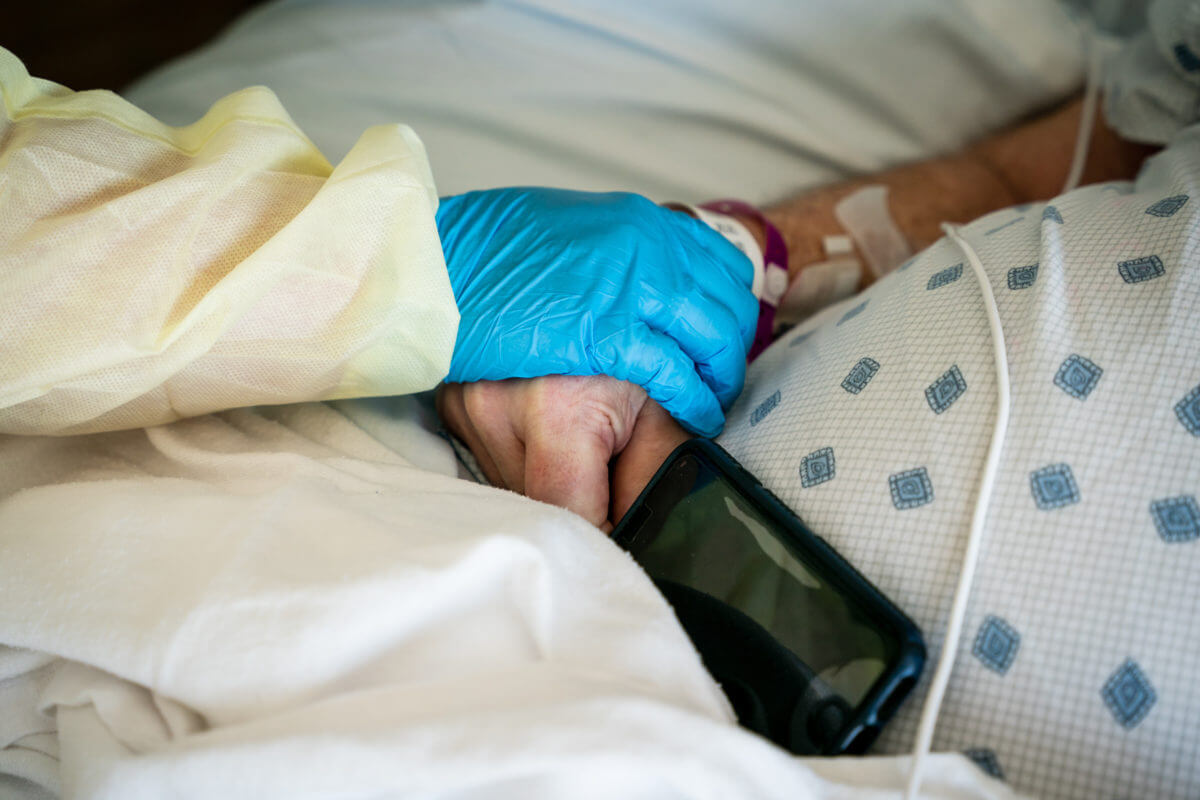
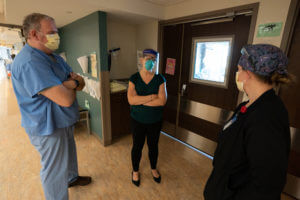
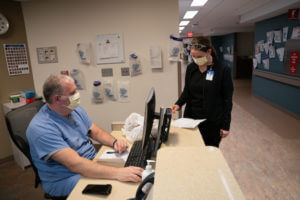
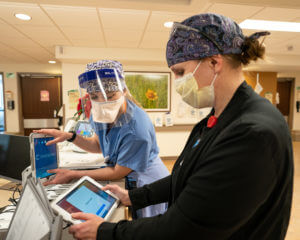
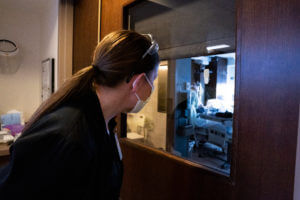
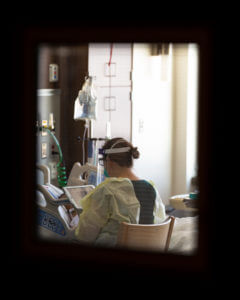
Even though you are unable to save all that come to you, this is a perfect example of you all being HEROS! All energy, from your hearts and souls, went into caring for this patient and family. Outcome makes your hearts very heavy, not because you didn’t give it your all, but because you did give it your all!!! Thank you for sharing this with us.